US House Hearing Ensuring Fair Elections at the NLRB, National Right To Work Opening Statement
Witness: Aaron Solem, Staff Attorney, National Right to Work Legal Defense Foundation, Springfield, Virginia
The principal purpose of the NLRA is to protect employee free choice.
Unfortunately, the NLRA fails to do so in one major respect: it authorizes forced fee
arrangements that compel employees to pay union fees upon pain of losing their
jobs. Until that problem is solved, unions and their political allies will continue
pushing the anti-employee policies I am discussing today. That is why the single
most effective way to address the issues we’re discussing at this hearing would be
to pass the National Right to Work Act (H.R. 1200) and outlaw forced union dues
across the country.
Section 7 of the NLRA grants employees a right to join or organize a union
and it grants an equal right for employees to refrain from these activities.
Yet, NLRB General Counsel Abruzzo, the Biden-appointed majority on the
NLRB, and even some in this Congress are attempting to undermine employee free
choice by ending or limiting the secret ballot. General Counsel Abruzzo is seeking
to virtually end secret ballot elections and mandate unreliable, undemocratic union
card checks as the primary method of union selection. The Board is also making it
harder to oust a minority union by bringing back the disreputed and heavily criticized
“blocking charge” policy. This policy will make it harder for individual employees
to decertify unwanted unions through secret ballot elections, even if 100% of the
employees no longer wish to be represented.
Finally, some in this Congress have introduced the so-called Protecting the
Right to Organize Act (PRO Act), which would permit unions to impose forced fee
requirements on private sector workers notwithstanding state Right to Work laws.
While this effective repeal of state Right to Work laws is the worst feature of H.R.
20, it is not its only negative feature. The PRO Act also gives union officials more
power to impose compulsory unionism on individual workers, fulfilling nearly all of
Big Labor’s wish list.
To justify these radical proposals, many claim it is problematic that the
percentage of Americans in the private sector who are represented by a union is at
an all-time low. But this reflects the fact that most Americans do not want to submit
to the union yoke. A recent Gallup poll of Americans’ attitudes towards unions asked
nonunion workers whether they would be interested in joining a union and only 11%
said they were “extremely interested.” Sixty-five percent (65%) said they had little
or no interest in joining a union.
It is employee disinterest that has caused a drop in union organizing, not
restrictive laws and employer meddling, and certainly not Right to Work laws. Many
of the employees I represent find unions divisive, too political, too corrupt, or just
ineffective in fulfilling their promises. Union officials should address the issues that
have led to their alienation from rank-and-file employees. Instead, union officials
are demanding more government power to force employees involuntarily into
monopoly union representation and into paying forced union fees. ...
Download Aaron Solem's submitted Opening Statement: https://edworkforce.house.gov/uploadedfiles/5.22.23_solem_testimony_help_subcommittee_on_ensuring_fair_elections_at_the_nlrb.pdf
-
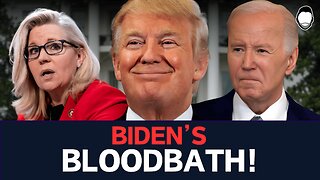 1:54:07
1:54:07
Robert Gouveia
4 hours agoTrump CRUSHES; 2024 Debate Recap; Biden Thrown OVERBOARD; J6 VICTORY
27.1K48 -
 LIVE
LIVE
FusedAegisTV
12 hours agoDawntrail is HYUR! | Final Fantasy XIV 7.0 Early Access Day 1
405 watching -
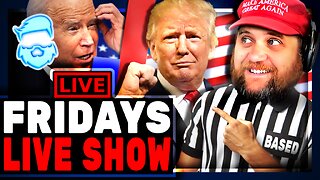 1:02:40
1:02:40
The Quartering
4 hours agoDebate Fallout! Trump Dominates Polls, Democrats Trying To DITCH Biden!
50.3K108 -
 2:10:49
2:10:49
Barstool Yak
6 hours agoThe Yak with Big Cat & Co. Presented by Rhoback | The Yak 6-28-24
33.8K1 -
 UPCOMING
UPCOMING
Power Slap
9 days agoPower Slap 8: Da Crazy Hawaiian vs DVH | Paige VanZant and Dumpling | Friday June 28 at 9pm ET / 6pm PT
1.01M30 -
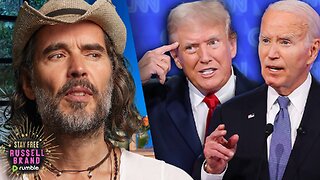 1:20:25
1:20:25
Russell Brand
7 hours agoBIDEN just got DESTROYED in the debate & Exclusive Jonathan Roumie Interview - Stay Free 396
243K497 -
 1:24:49
1:24:49
Michael Franzese
5 hours agoMy Thoughts on The Debate | Michael Franzese LIVE! Ep 9
62.6K74 -
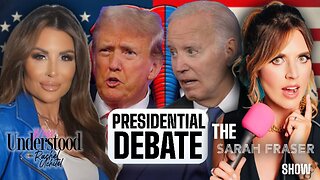 1:00:42
1:00:42
Miss Understood With Rachel Uchitel
4 hours agoTrump VS Biden Round 1 RECAP - Rachel Uchitel & Sarah Fraser Live
45K21 -
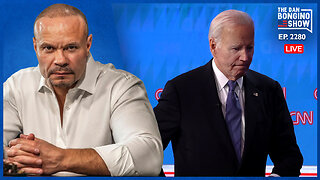 56:11
56:11
The Dan Bongino Show
8 hours agoAbsolute Annihilation (Ep. 2280) - 06/28/2024
885K2.97K -
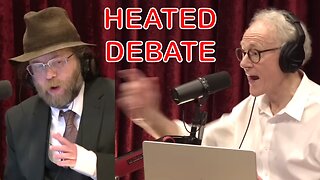 31:40
31:40
Bright Insight
6 hours agoWhat You MUST Know about Lost Ancient Civilizations
60.8K57